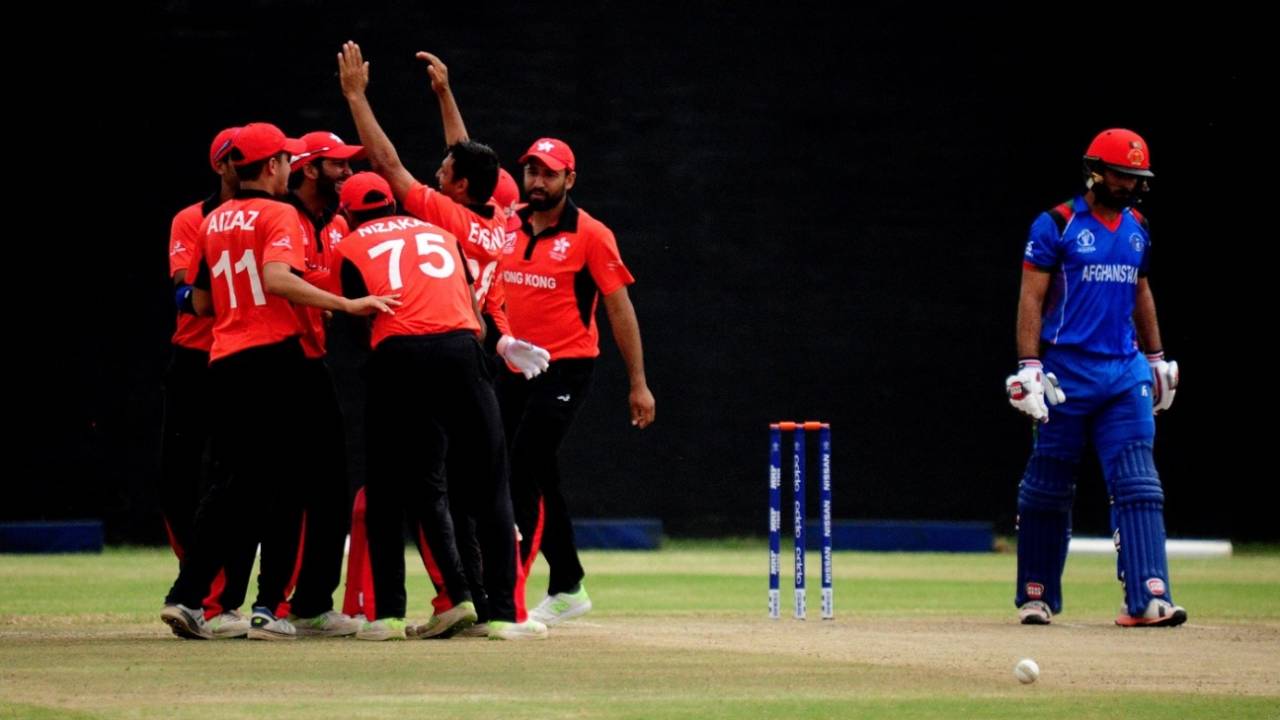Asia Cup participation highlights the ironies of Hong Kong's ODI existence
The tournament will be a high point of a bizarre year in which the team has lost its ODI status while also securing famous wins against Afghanistan, UAE and Nepal in the 50-overs format
ICC
If playing in the Asia Cup were an opportunity afforded only to teams with ODI status, then Hong Kong would have been locked out in favor of UAE and Nepal, teams they scored a trio of wins against at the qualifier in Malaysia.
Peter Della Penna is ESPNcricinfo's USA correspondent @PeterDellaPenna
